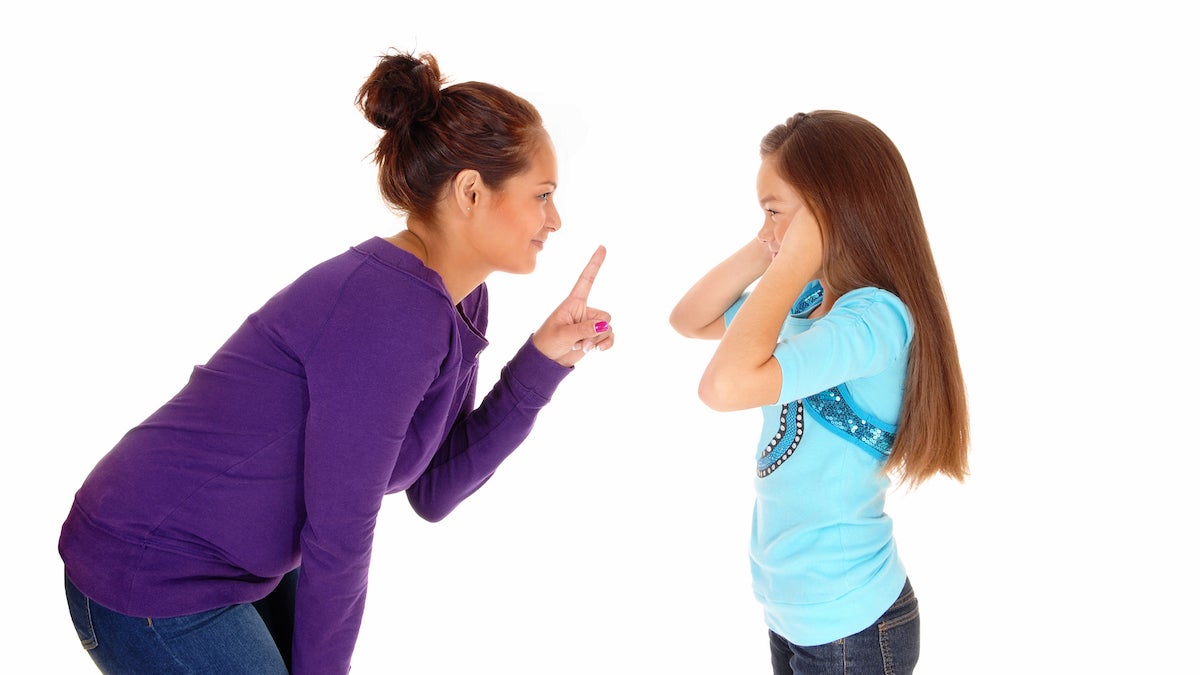When did ‘no’ become a bad word?
 Saying no photo via ShutterStock) " title="shutterstock_231475252" width="1" height="1"/>
Saying no photo via ShutterStock) " title="shutterstock_231475252" width="1" height="1"/>
(Saying no photo via ShutterStock)
A few weeks ago, I took my four-year-old daughter to ballet class. When we got there, it was clear one of the students — let’s call her Becky — did not feel like doing ballet that day. Becky spent the first 15 minutes of class doing everything but dancing. The teacher’s response was to simply ignore her. Becky just got louder.
Becky’s mom observed all of this with only haphazard attempts at getting Becky to behave. First, she offered Becky a cookie if she behaved. Then she promised to take Becky toy shopping if she behaved. Finally, and only after Becky threw one of her pink sneakers at her mom, hitting her squarely in the face, did Becky’s mom screw up the courage to say no: “No, Becky, you cannot throw shoes at your mother.”
She took Becky home and the rest of us finished watching our children stumble through ballet class.
Later that day I was recounting the story to my friend and I found myself wondering when saying “no” became such a big deal? Why did Becky’s mom need a sneaker upside her head before she could say no to her daughter? I say no to my three kids all the time.
Here are some things I say no to on a regular basis:
No console video games
No cable
No social media
No allowance
No caffeinated soda
No sugary cereals for breakfast
No headphones or electronics of any kind at the dining table
No TV during the week during the school year
No cellphones that cost the same as your parent’s cellphone
No using the phrase, “I’m bored.”
I’m not a tiger mom, but I do roar!
A few years ago, author Amy Chua came under fire for her book, “Battle Hymn of the Tiger Mother” where she too confessed to saying no to a lot of things many Western parents consider normal. No play dates, no sleepovers, no grades lower than an A on report cards. Chua defended her parenting choices by saying she was raising her daughters the same way her parents raised her.
While I wholly disagree with most of Chua’s parenting ideals, I do think she touched on a critical issue in that American parents are far too concerned with making their children “happy” instead of making them smart or successful. I think saying “no” to my kids will help them be smart, successful, safe, useful, respectful, humble and happy.
But back to my draconian list of no-no’s in our home.
We’ve never had cable or video games in the house because I think those things distract children from all of the other things that require their time like homework, music lessons, sports, playing outside and chores. And speaking of chores, I have never understood why anyone would pay their kids for helping to keep the house they inhabit — and frequently mess up — clean. Quite frankly, they should be paying me for cooking, cleaning and doing the laundry.
If my kids need money they know they can always ask, but they’re also pretty clever at finding ways to make money on their own. My older son cuts the neighbor’s grass. My younger son comes with me whenever I do a book signing and I pay him for acting as my set up and clean up crew.
Luckily, my kids don’t complain much about all of the “no’s” in their life because it’s all they have ever known. Truth be told, it also makes my life easier as a parent.
By just saying no to things like Facebook and TV during the week for example, I’m freed up from constant media monitoring and having to implement schedules for TV time or video game time. It’s a win-win — my kids are happy and I’m happy.
Little Becky thrashing around on the floor? I’m guessing, not so happy.
WHYY is your source for fact-based, in-depth journalism and information. As a nonprofit organization, we rely on financial support from readers like you. Please give today.

